Where are they now? England's 2006 World Cup quarter-finalists
Elliott Turner remembers the Three Lions' so-called Golden Generation that failed to live up to expectations in Germany
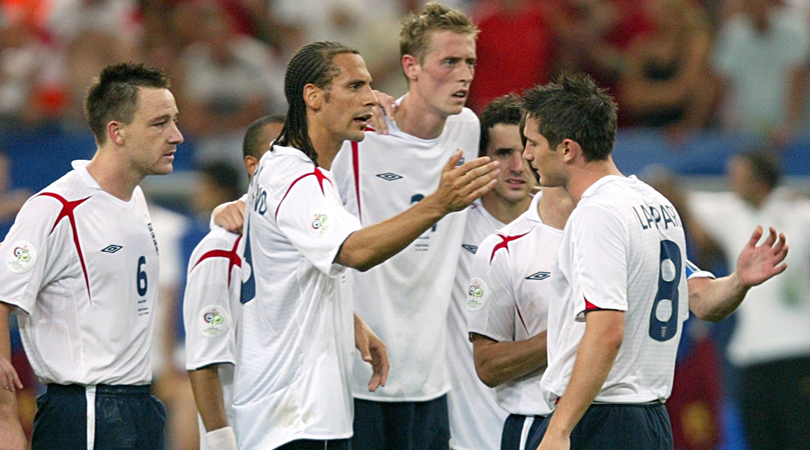
As usual, England fans were optimistic about their team's chances at the 2006 World Cup in Germany. After all, this is England we’re talking about. The Three Lions qualified for the tournament easily enough and were drawn into a seemingly straightforward group, while supporters believed that at least some important lessons had been learned by manager Sven-Goran Eriksson.
After Euro 2004 – when Sven’s ‘Wingerless Blunders’ advanced to the knockout stage but lost to hosts Portugal on spot-kicks – the biggest decision had already been made for the indecisive Swede: Paul Scholes, angry at being forced out wide, retired from international football.
Eriksson therefore had to tweak his plodding 4-4-2, and instead opted for a 4-1-4-1 with Owen Hargreaves shielding the backline. Still, any semblance of tactical coherence ended there, as individual player power dictated that David Beckham and Joe Cole would provide creativity from the flanks.
England topped their group comfortably, and then narrowly squeezed past Ecuador 1-0 in the last 16. Despite the Three Lions' progress, there were reasons for pessimism: the attack had looked sluggish and the midfield struggled to fashion opportunities. Had Ecuador been sharper in the penalty box, England could have easily been on the plane home after the first knockout round.
A quarter-final against Portugal followed, with Eriksson's 4-1-4-1 going head-to-head with Luiz Felipe Scolari's Christmas Tree formation. It was still goalless after 120 minutes, so another shoot-out would decide which of the two nations advanced to the semi-finals. Hargreaves, who was unfairly criticised by fans throughout the tournament, was the only England player to score, and Eriksson's men duly crashed out...
Paul Robinson
Robinson was no reincarnation of Gordon Banks, but he was solid in the air, positioned himself smartly and seldom tried to do too much
At the time, some thought Robinson was the weak link in this team, although hindsight and Robert Green have subsequently made that seem a little harsh. The Tottenham goalkeeper was no reincarnation of Gordon Banks, but he was solid in the air, positioned himself smartly and seldom tried to do too much. His record of clean sheets speaks for itself.
Get FourFourTwo Newsletter
The best features, fun and footballing quizzes, straight to your inbox every week.
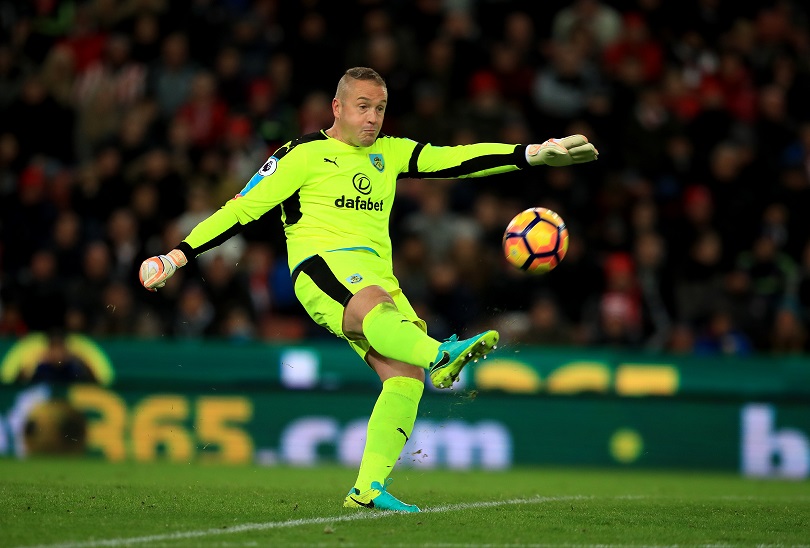
Of course, his blunder against Croatia in the Euro 2008 qualifiers will live long with infamy. A bumpy pitch caused a backward pass to bounce; Robinson ended up hacking at thin air, leading to a back-breaking goal. Still, are defenders not trained from a young age to never angle a backpass on their own frame?
At 37 years young, Robinson's still kicking it for Burnley in the Premier League and has made three league appearances for the Clarets this season.
Gary Neville
He attempted to “manage” the heaping mess that is Valencia for a short time last season, but lasted only a few months.
Neville was always a better football player than athlete. Nobody would confuse him for the robust roadrunner Cafu, but the Manchester United man could always be counted on to “put in a shift" and his failings were never the result of a lack of will or guile. With Beckham - slow, and not one for tracking back - in front of him, Neville tended to stick to his own half for England.He retired from the game in 2011 and now works as a pundit for Sky Sports alongside his business interests (namely Salford City, who he owns a share of, and Hotel Football). Neville attempted to manage the heaping mess that is Spanish club Valencia for a short time last season, but lasted only a few months in his brief foray into management.
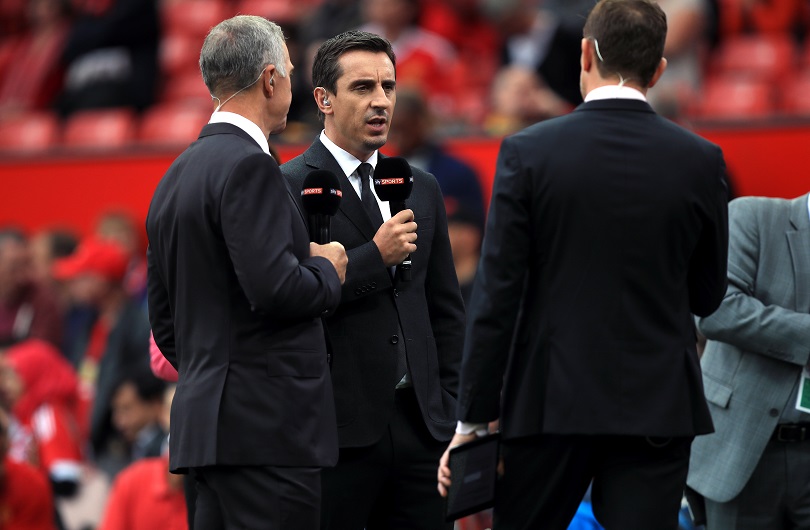
Rio Ferdinand & John Terry
England may have struggled to score goals, but Ferdinand and Terry rarely put a foot wrong at the back
England had a glut of tough-tackling centre-backs in 2006, but Ferdinand and Terry got the nod ahead of Ledley King and Sol Campbell. Even Jamie Carragher struggled to get minutes, despite being a Champions League winner. England may have struggled to score goals, but Ferdinand and Terry rarely put their feet wrong at the back.
There was no international glory to come post-Germany, though. Terry became famous for his "indiscretions" and was almost dropped for South Africa 2010; at club level, he enjoyed one final great season for Premier League-winning Chelsea two years ago, but has been relegated to the bench under Antonio Conte.
Ferdinand retired a few years ago, meanwhile, but remains active on social media and works as a pundit for BT Sport. The outpouring of support for him after his wife’s untimely passing in 2015 is testament to his special relationship with fans in an era where most social media accounts are run by PR professionals, rather than the athletes themselves.
Ashley Cole
He was rarely caught out of position when defending and was difficult to get past 1v1
Cole broke many Arsenal fans’ hearts when he moved to Chelsea after the 2006 World Cup, but few can fault him for his performances and attitude for England. His pace and technical ability made him an asset and a threat going forward, but he was rarely caught out of position when defending and was difficult to get past one-on-one.
Cole left Chelsea in 2014 and, after a very forgettable spell at Roma, he moved to Hollywood and now plays for LA Galaxy. After making 28 starts last year, he's yet to appear this season due to injury. Malibu and Manhattan Beach will do that to your hamstrings.
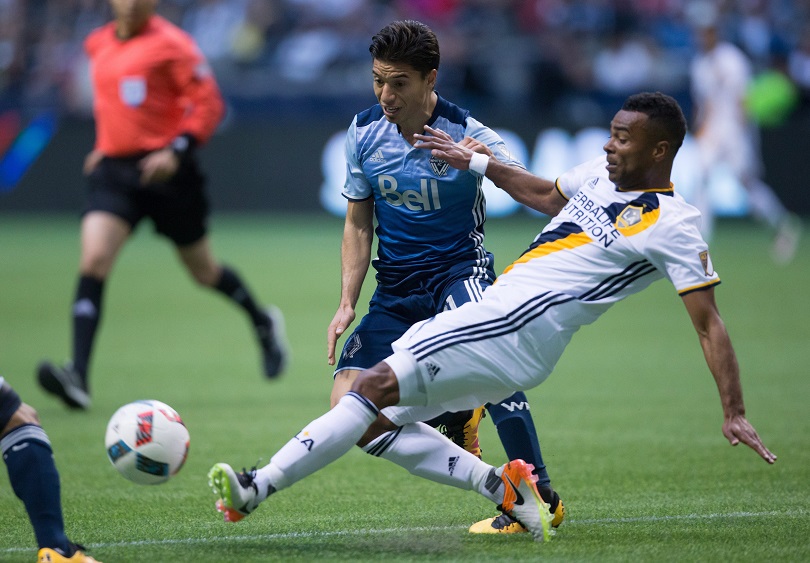
Owen Hargreaves
The robust and broad-shouldered anchorman was also a precise passer with the ball at his feet
Many England fans are still disappointed that Scholes was forced out of the national team, but at least his premature departure meant England played with a genuine holding midfielder for the first time in a while. Hargreaves tackled like a centre-back, but the robust and broad-shouldered anchorman was also a precise passer with the ball at his feet.
After impressive performances at the 2006 World Cup and in the 2008 Champions League Final for Manchester United, Hargreaves' career was derailed by persistent injury problems. His famous workout video convinced Manchester City to take a chance on him, but by then the game had sadly passed him by.
- RECOMMENDED 8 players who switched international allegiances – and a Premier League star who still could
David Beckham
The right-hand side of this England team suffered from a chronic lack of pace and very little variation in attack
The England attack was a case of good individuals, poor collective. Beckham was a big part of that - a sweet crosser of the ball and an underrated decision-maker - but who was really going to get their head on the end of his bending passes from the flank? The isolated Rooney? The late-charging Lampard? The prematurely galloping Stevie G?Compounding matters, the Real Madrid man wasn't very mobile and often suspect defensively. As a result, the right-hand side of this England team suffered from a chronic lack of pace and very little variation in attack.
Beckham would win a La Liga title with Madrid in 2007 and then the MLS play-offs three times with LA Galaxy. Since retiring, he's tried (so far unsuccessfully) to launch his own club in Miami, and apparently wouldn't mind being knighted by the queen.
Frank Lampard & Steven Gerrard
Flashes of attacking brilliance were overshadowed by careless passing and erratic positional play
Oh, this again.
In theory, Lampard and Gerrard should have functioned as a midfield duo more dynamic than Batman and Robin. Of course, in theory, communism also works and the Soviet Union should have been a happier place to live than Disneyland. Sadly, in practice, Lampard and Gerrard stepped on one another’s heels more often than not, as flashes of attacking brilliance were overshadowed by careless passing and erratic positional play.
Still, this tandem would boss the England midfield for another four years, as the Three Lions failed to qualify for Euro 2008 and exited early at the 2010 World Cup in South Africa. Since then, both players have moved to MLS: while Gerrard did little more than “vacay” in LA, Lampard enjoyed a fine run of form for New York City before announcing his retirement earlier this year.
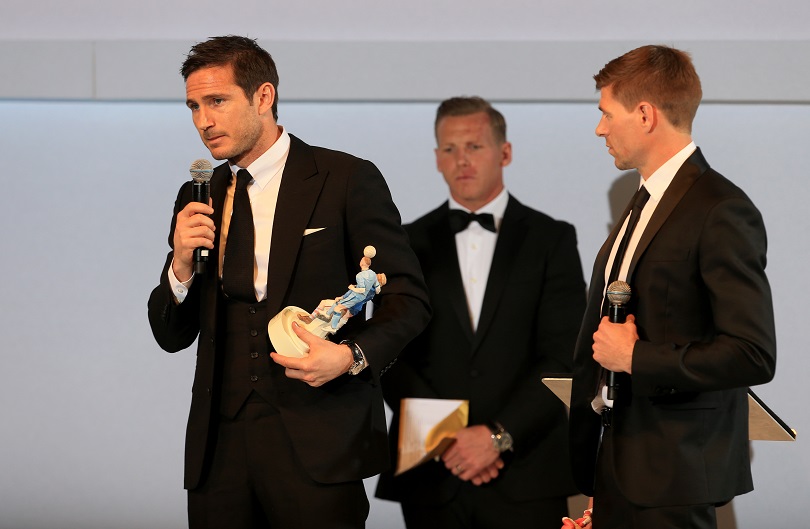
Joe Cole
Cole soon became a journeyman, playing for Liverpool, Lille, West Ham, Aston Villa, Coventry and Tampa Bay Rowdies
Cole was probably the closest England has come to producing a top-class inverted winger, but his game suffered from one serious flaw: his shooting. The then-Chelsea man generally lacked the precision to trouble an elite keeper from 20 yards out, so he often cut inside and ended up troubling nobody. The exception to the rule, perhaps, was his stunning effort in the group-stage draw with Sweden.
Cole had a few good seasons at Stamford Bridge but soon became a journeyman, playing for Liverpool, Lille, West Ham, Aston Villa, Coventry and, currently, the Tampa Bay Rowdies in America's second tier.
Wayne Rooney
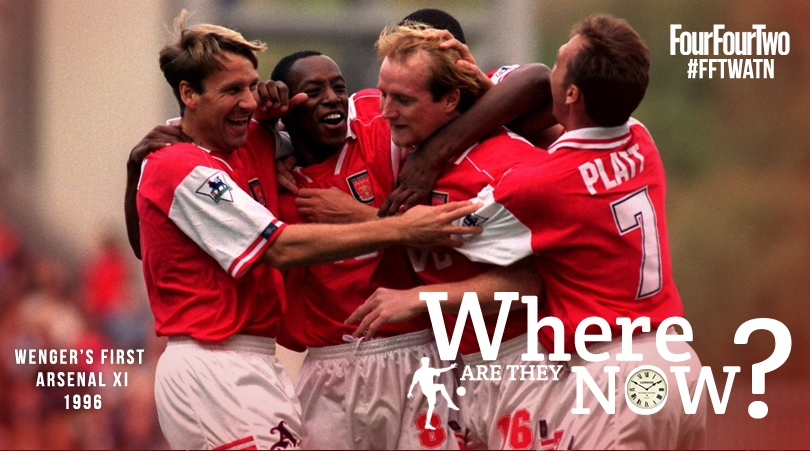
Arsene Wenger's first Arsenal team
Rooney was a revelation at Euro 2004, but suffered from a slew of injuries and lack of match fitness before the 2006 World Cup. Worse still, he was given the demanding physical task of playing as a sole striker – a role which has never been suited to his qualities.
A loss of form and questionable tactics conspired to ruin his tournament, although he did himself no favours by stamping on Ricardo Carvalho in the quarter-final against Portugal.
Rooney is still plying his trade at Manchester United over a decade later, and now holds the all-time scoring record for both England and the Red Devils. His club days in Europe could be numbered, though, with the 31-year-old likely to depart Old Trafford in the summer and links with the Chinese Super League refusing to go away. 再见, Wazza!
